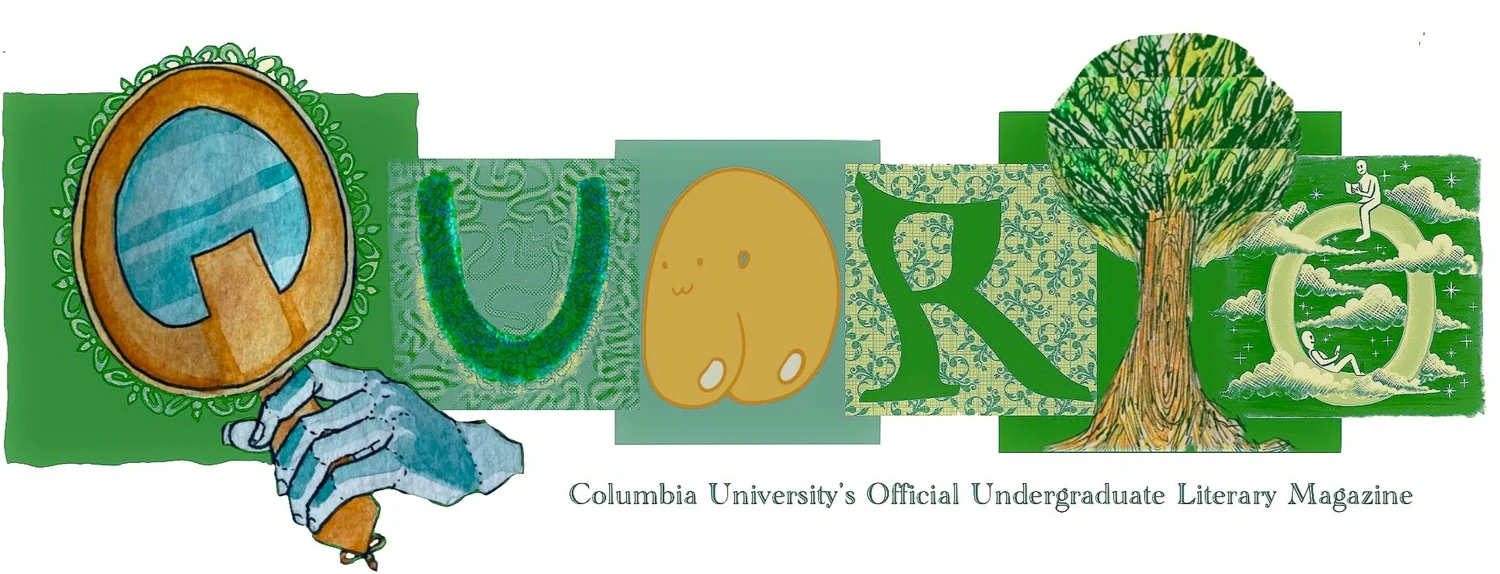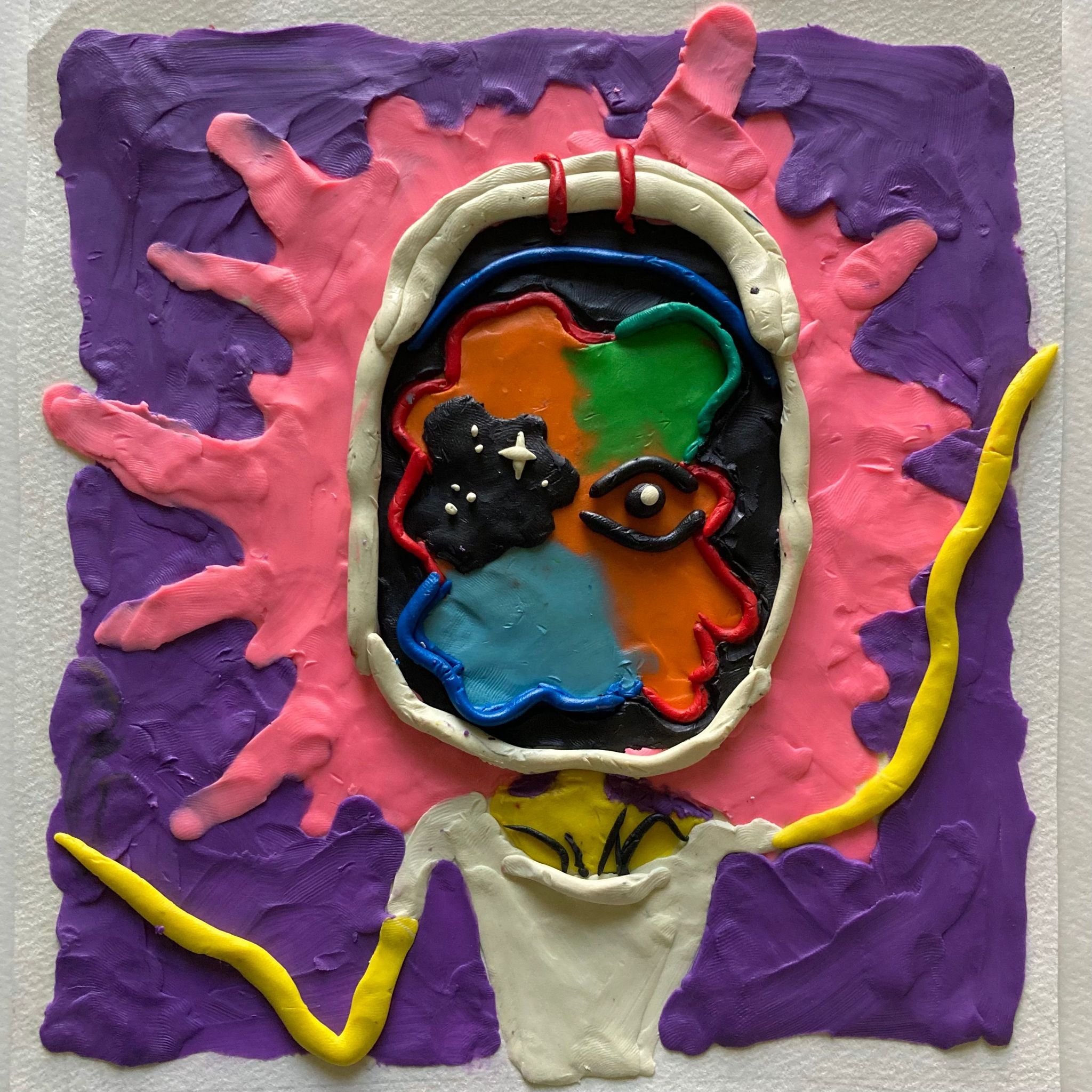Fiction Winner in Quarto’s 2023 Spring Print Edition.
This piece was first published in Quarto’s 2023 Spring Print Edition.
I met him on Craigslist. I’d posted an ad looking for someone who knew statistics, “PAID OPPORTUNITY. NOT A SCAM.” I was in a course at the community college, and I got to take all the tests home because my psychiatrist told them I was troubled. “Reallyreallytroubled,” he’d said. He told me he made the letter sound professional. “They might even send you to the loony bin.” And then I stopped listening.
M. responded to the post with a phone number. “I hear you know statistics,” I said when a man’s voice answered. He sounded tall and masculine and sincere. Stoic, even. “Statistics is its own language,” he said. It sounded reasonable. “Could you tell me what you’re working on?” he asked. “I will,” I told him. “And I’d like this to be regular. Maybe we should discuss in person. Not to sound suggestive,” I added. “Can we get together?”
“Why don’t you come over,” he said. “I’m right by the college.”
He sent an address. I showered, scrubbed my armpits, downed a Monster. I put on a painter’s shirt, some old cologne from middle school, the corduroy pants I wore on Christmas. I thought I should look intellectual, to meet a statistician. I even read up on current affairs, and then I practiced saying the headlines out loud. “A Chinese surveillance balloon has landed in Montana.” “Tom Cruise had a facelift.”
There was lots of purple in his apartment. Grapes in a canned soup container, lavender hand soap, a wine stain on the counter. That’d been my favorite color as a child, so I took it as a sign. It’s all looking up, I thought. Turned out I was wrong about that. I walked around the mattress on the floor, a mold spore he introduced as “my roommate.” Stacks of papers all over, a row of supplements on the furnace. “Silver is a natural antibiotic,” he said after he swallowed some. “It was once used to treat syphilis.” He offered some, and seemed disappointed when I said no.
His hair was half-there, brown, curled. I could see his chest hair too, through this paper-thin T-shirt he was wearing. He said something about shaving that I can’t remember — probably that it was “perverted.” “The world order,” was another phrase he used. He seemed serious and neurotic. He seemed alive. I could tell he was on acid.
“I’m a psychonaut,” he said when I asked. It meant he did a lot of psychedelics. “I want to see how far I can go into my own mind." I couldn’t decide if it was moronic or spiritual. “Some quack nonsense,” my mother would say. He said he did it because of his sad and miserable childhood, but I didn’t ask about that.
“You’re like Walter White,” I said. I had been watching lots of Breaking Bad at this point, but only parts, or else I’d become too emotional.
“Is that someone you know?”
I told him not to mind, and asked him about statistics. “You seem more intuitive,” is what he said. “You just have to follow your intuition. The rest will come. That’s how I wound up doing what I do.” He studied the surface area of Greenland’s ice sheet. “Sermersuaq, is how you say it in Greenlandic.” A man in Denmark sent him satellite data, and he entered it into spreadsheets. “But that only tells us so much,” he said. “There’s an overemphasis on reason at the moment. I’m serious. Reason is what led to Chernobyl, although you weren’t alive then, I take it.” I shook my head. “Have you watched the documentary?”
“I haven’t.”
“You should. Sumé, too.”
“I just watched one about the situation in Ukraine,” I lied. “In Polish.”
“You look Polish,” he said. I nodded. He said he’d learned some of the language once because he had an affinity for Slavic culture. “There’s internal conflict, of course, but they’re truly attached to living. We’ve strayed so far from that.” He seemed stranger by the second. Some sort of sage, is how I understood it. I wondered if he was real. I wondered if I was asleep. “Are we asleep?” I asked him. He said it was possible. And then I wanted canned fruit. “I’m craving some canned fruit.”
He said, “Well, we might have to grab some.”
Remembering M. now is difficult.
Both of us slumped inside his Honda at the supermarket. He told me he’d go inside and that I should wait for him. I wanted to touch his shoulders. His swollen shoulders. In my mind, I touched his shoulders and they led to childbirth. Our children spoke Greenlandic and scaled mountains. He was closer than he’d been in the apartment, and I could see all the openings in his skin.
“Oh,” he said when I put my hand on his arm.
And then my hand was under his inseams. “Chłopak,” he said, the same way my mother did. There was a shopping cart outside full of cardboard. “Open your mouth.” He slid off his boxers, over the sneakers, held the back of my head. His cock had a slight curve to it. I reached for it and he shook his head. “Wait,” he said. “Wait here.” He held his boxers in one hand and started to shove them inside my mouth. I tasted sweat and mustard. “I don’t—,” I started to say, and he just stared at me. I can’t remember what his eyes looked like — I imagine them cold and dark, two black holes. “Stay like that.”
And I knew then I’d do whatever he said.
Dante Silva (he/him) is a student at Columbia College and currently works for The New York Review's publishing imprint (NYRB). Previous work can be found in PAPER and V.

